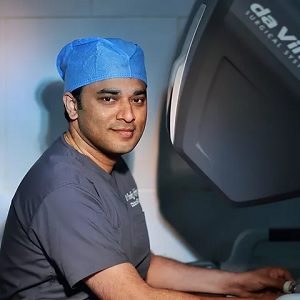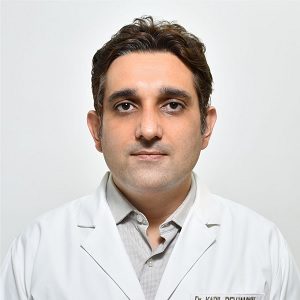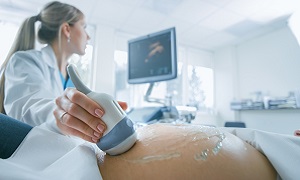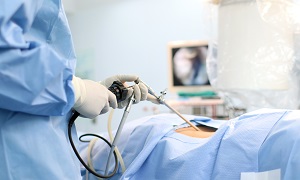Best Appendicitis Treatment Doctors in India
- Liver Transplant Surgeon and HPB Surgeon, Chennai, India
- Over 15 years’ experience
Profile Highlights:
- Dr. Selvakumar Naganathan is one of the best liver transplant surgeons in India with nearly 15 years of experience.
- He has carried out more than 2000 procedures, including 300 donor & 500 recipient hepatectomies, cadaver transplantations, retrieval of cadaver livers, and live donor liver transplants.
- He also established many liver transplantation centers across India & other countries.
- General Surgeon and Surgical Gastroenterologist, Chennai, India
- Over 27 years’ experience
Profile Highlights:
- Dr. Raghunath K J is a well-known name in the field of general surgery with an experience of more than 27 years.
- He went under training in advanced Laparoscopic surgery from Canada and France.
- Dr. Raghunath pioneers many prestigious projects in the UK.
- Dr. Raghunath has a specialized interest in Gall Bladder Stone treatment, Hernia, GI Cancer Surgery, Laparoscopic Sleeve Resection, Endoscopic Surgery, etc.
- Colorectal Surgeon and Robotic Surgeon, Chennai, India
- Over 26 years’ experience
Profile Highlights:
- Dr. Venkatesh Munikrishnan is one of the best Gastroenterologists and Colorectal Surgeons in Chennai, having 21 years of experience in managing disorders that need surgical treatment.
- Dr. Munikrishnan specializes in surgical oncology, endoscopy, Gastritis Treatment, etc.
- He is also active in research; one of his research on CT Colonography fetched a grant from Bracco, Milan, Italy.
- GI Surgeon and Liver Transplant Surgeon, Gurugram, India
- Over 20 years’ experience
Profile Highlights:
- Dr. Amit Nath Rastogi is a pioneer in the field of liver transplant surgery. He completed his fellowship in liver transplant surgery at Sir Gangaram hospital while being a part of the largest liver transplant program in the country.
- Furthermore, he received his training in robotic liver surgery from IRCAD -Strasbourg, France, and advanced robotic HPB training from Grosseto.
- Liver Transplant Surgeon, Gurugram, India
- Over 10 years’ experience
Profile Highlights:
- Dr. Prashant Vilas Bhangui is one of the highly trained liver transplant specialists who received his training in Surgical Gastroenterology and Liver Transplantation.
- He also holds a European Inter-University Diploma in Hepato-Biliary-Pancreatic Cancers.
- Dr. Prashant is further interested to work in certain fields which include hepatocellular carcinoma, colorectal liver metastases, and living donor liver transplantation. Besides this, he has also published several journals on these subjects.
- Gastroenterologist, Gurugram, India
- Over 7 years’ experience
Profile Highlights:
- Dr. Abhinandan Mishra is one of the young Gastroenterology doctors in Gurugram who is particularly interested in inflammatory bowel disease treatment.
- Dr. Abhinandan Mishra offers Endoscopic Retrograde Cholangiopancreatography, Ascites tap, Endoscopy, Peroral Endoscopic Myotomy, Capsule Endoscopy, Esophageal Manometry, Magnetic Resonance Cholangiopancreatography, etc.
- Gastroenterologist, Gurugram, India
- Over 18 years’ experience
Profile Highlights:
- Dr. Atul Sharma is a renowned Gastroenterology practitioner in Gurugram and is particularly interested in Third Space Endoscopy and Per Oral Endoscopic Myotomy (POEM).
- He presented several papers on Manometry, Luminal gastroenterology, and interventional Gastroenterology during training in Advanced Interventional GI Endoscopy.
- Gastroenterologist, Gurugram, India
- Over 15 years’ experience
Profile Highlights:
- Dr. Kapil Jamwal is a renowned GI practitioner in Gurugram with an extensive experience in digestive and liver disease.
- The specialist offers treatment for Hepatitis B, Jaundice, Hepatitis C, Inflammatory Bowel Syndrome, Acute Pancreatitis, Liver Diseases, and Irritable Bowel Syndrome.
- Gastroenterologist, Gurugram, India
- Over 18 years’ experience
Profile Highlights:
- Dr. Rajesh Padhan is a renowned Gastroenterologist in Gurugram with an extensive experience of more than 18 years in the field.
- He is skilled in carrying out various endoscopy procedures such as Colonoscopy, Endoscopic retrograde cholangiopancreatography, Endoscopic ultrasound, upper GI endoscopy, etc.
- Gastroenterologist, Hepatologist, Gurugram, India
- Over 25 years’ experience
Profile Highlights:
- Dr. Sakshi Karkra is one of the best Pediatric gastroenterologists in Gurugram.
- She has special interest/ expertise in Colonoscopy, Upper GI Endoscopy, Capsule endoscopy, Enteroscopy, Endoscopic variceal ligation, Foreign body removal, Stricture & achalasia dilatation, Polypectomy, Anal manometry, Liver Biopsy, and Colonic manometry.
Best Appendicitis Treatment Hospitals in India.
What is Appendicitis?
Appendicitis is a medical condition in which there is an inflammation of the Appendix. The Appendix is a finger-shaped pouch that projects from the colon on the right side of our abdomen.
Patients with appendicitis experience pain in lower abdomen. The pain generally begins around the navel and progresses. The pain becomes intense as the inflammation worsens.
Appendicitis generally occurs in the age group 10-30, but can happen at other ages also.
Types of Appendicitis
The two common types of Appendicitis are:
- Acute Appendicitis – Acute Appendicitis appears suddenly and can be severe in nature. Acute appendicitis requires instant/ immediate medical attention and is actually more common than chronic appendicitis
- Chronic Appendicitis – In Chronic Appendicitis, the symptoms are mild and progressive in nature and may come and go from time to time. This type of appendicitis can be hard to diagnose and may only be detected if it turns into acute appendicitis.
Possible complications of untreated Appendicitis
An untreated appendicitis is much more dangerous as it can burst and cause a nasty bacterial spill in your gut and larger intestine which is actually quite dangerous.
But hopefully, you don’t have to wait around waiting for your appendix to rupture, especially if you know everything about the common appendicitis symptoms and most importantly the cause.
Causes of Appendicitis
Although we are yet to determine the exact cause of appendicitis, here’s what doctors and medical practitioners have narrowed down the most probable causes leading to this condition.
Appendicitis primarily develops when a part of the appendix gets blocked or obstructed by any object inside the body. The object can be anything from-
● Intestinal worms
● Hardened stool
● Physical trauma
● Certain foreign body
● Cancer (Rare but possible)
Symptoms of Appendicitis
The most common appendicitis symptoms would include:
- Pain in the navel region (above or below)
- Pain in the lower right abdominal area
- Recurring indigestion
- Nausea (maybe accompanied by vomiting)
- Appetite loss
- Diarrhea / constipation
- Bloating or abdominal swelling
- Mild fever
Appendicitis pain starts off mild much like cramps but would eventually grow more and more intense with time. Also, the initial source of the pain keeps changing with time moving from the upper abdomen to the lower right section of your abdomen.
Diagnosis of Appendicitis
Following are some of the diagnostic tests for Appendicitis.
- CT scan / MRI / X-Ray
- Ultrasound
- Complete Blood Count or CBC Test
- Urine test (to determine presence of infection)
- Rectal test
- Physical exams (to access pain, inflammation, discomfort level)
Appendicitis Treatment
Based on your age, severity, and other variables; you doctor may suggest some non-invasive treatment methods such as- antibiotics, pain relievers, liquid diet etc.
However, in most of the appendicitis cases, a surgery is the best option for a complete cure and the surgery most commonly practiced for it is known as Appendectomy. This standard form of treatment eliminates not just the inflamed organ but probable safety hazard risks such as appendix rupture too.
Appendicitis Surgery
The two primary invasive treatment methods thus include:
Appendectomy
Appendectomy is an open surgery where a small incision is made to surgically remove the inflamed appendix. However, laparoscopic surgery options are becoming more and more common these days where small surgical tools are inserted along with a minute video camera to surgically remove the appendix. The recovery time for this procedure is usually fast with almost 90% success rate.
Abscess Drainage
Appendicitis Surgery- things you need to remember
- If your medical practitioner recommends surgical intervention, please disclose your full medical history (along with existing or current medication routine) before the surgery.
- Your doctor may request you to follow a certain diet which may include liquids, no alcohol, and no tobacco! Please follow the routine strictly as it can increase the success rate of your surgery.
- You can be back on your feet within 12 hrs of this surgery (provided there are no additional complications)
- If you experience symptoms like nausea, intense stomach /abdominal pain, high fever, bloody vomit, wound infection from the surgery- please contact your doctor immediately
Appendicitis post recovery care
For the next few weeks after your appendicitis surgery, here are some of the basic lifestyle steps you should take to ensure a speedy recovery:
- Don’t live a sedentary lifestyle but don’t go overboard with your activities. Start slow and slowly increase
- Provide support to your abdomen if you’re coughing. You can press a pillow over the abdomen and apply mild compression for support before you cough.
- Your doctor may prescribe some low dose pain medication to you. If your pain relievers fail to alleviate pain, please contact your doctor.
- Discuss going back to work or normal lifestyle and the type of help or assistance you would need with your healthcare professional.
Possible complications
Following are the possible complications of an untreated appendicitis:
- Internal Rupture – In case of prolonged ignorance or deliberate ignorance; as mentioned before, a rupture in the appendix can turn this condition from mild/serious to life-threatening!
- Abscess – Appendix bursts or ruptures can also lead to formation of a pus pocket inside the organ, commonly known as an Abscess. Surgeons have to manually drain the abscess in this case and a tube is left inside for about two weeks while you’re prescribed antibiotics to avoid infection.
Prevention is Better Than Cure
Following are the commonly recommended activities & food to avoid having a Appendicitis:
- Include well-cooked vegetables and fresh fruits in your diet
- Legumes and greens are great to keep indigestion and stool complications at bay
- Whole grains are also good for your everyday diet
- Don’t go overboard with anything. Everything appropriately measured and consumed can keep complications like this at bay.
- Sedentary lifestyle is a strict No-No.
FAQs
1. Can appendicitis risk depend on your age?
Yes! Appendicitis risks may vary based on age, sex (men are more likely to get affected than females), and dietary choices based on age groups.
2. How long do I have to wait before I can go back to my normal life?
3. Do I have to stay overnight in the hospital after appendicitis?
4. Do appendicitis run in the family?
Even though we are not sure if its hereditary-based or not, studies have shown, people with a family history of appendicitis are much prone to this condition.













